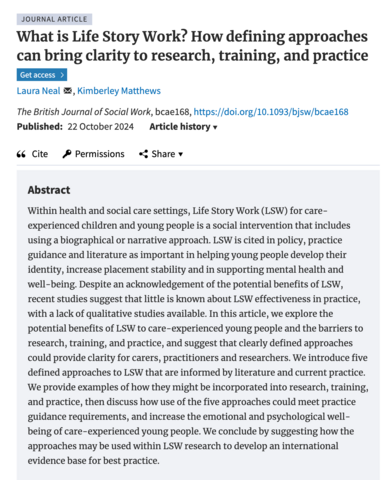Within health and social care settings, Life Story Work (LSW) for care-experienced children and young people is a social intervention that includes using a biographical or narrative approach. LSW is cited in policy, practice guidance and literature as important in helping young people develop their identity, increase placement stability and in supporting mental health and well-being. Despite an acknowledgement of the potential benefits of LSW, recent studies suggest that little is known about LSW effectiveness in practice, with a lack of qualitative studies available.
In this article, the authors explore the potential benefits of LSW to care-experienced young people and the barriers to research, training, and practice, and suggest that clearly defined approaches could provide clarity for carers, practitioners and researchers. They introduce five defined approaches to LSW that are informed by literature and current practice. They provide examples of how they might be incorporated into research, training, and practice, then discuss how use of the five approaches could meet practice guidance requirements, and increase the emotional and psychological well-being of care-experienced young people. They conclude by suggesting how the approaches may be used within LSW research to develop an international evidence base for best practice.

